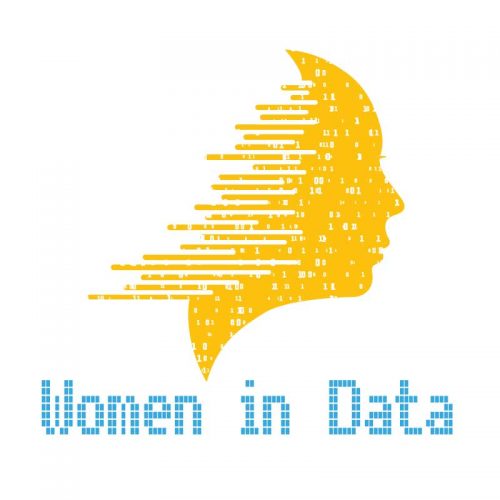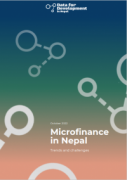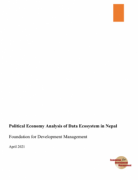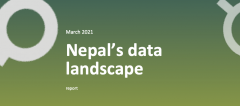
Towards federal statistics: Meeting the data needs of Nepal’s new constitution
March 23, 2021
Evidence based decision making in Nepal: Making strides. But still a long way to go.
July 31, 2021Keeping Girls in STEAM to Become Women in Data
Colleagues and champions of women in data in Nepal came together during the second Women in Data conference on March 20, 2021. The virtual conference brought together women from academia, the private sector, and civil society to discuss this year’s theme: Leveraging the Power of Women, Data and Technology. The conference featured two panel discussions with prevalent women working in Nepal’s expanding data and tech sectors; and a presentation covering the state of science, technology, engineering, arts, and math (STEAM) for females in Nepal. One of the key points of discussion over the course of the afternoon was on ways to encourage girls and women to stay engaged in data and technology.
The labor force participation rate of women in Nepal is stunningly high, but they portion of those working women who have careers in data and tech remains very small. According to Nepal’s Labour force survey 2017-18, 81% of the female population over 15 years old is economically active, but among them only 0.5% work in the ICT sector (a proxy for data and technology). Apart from ICT, UNESCO estimates that just 7.8% of researchers in Nepal are female. While this gap between male and female participation in data, technology, or STEM in general is not unique to Nepal, the reasons women are pushed out of these sectors are influenced by social and cultural structures in Nepal.
“We see no difference between boys and girls in their abilities in the classroom” panelist Jyoti U. Devkota, Professor in the Department of Mathematics at Kathmandu University noted based on her years of teaching. She said, and panelists agreed, that when it comes to learning math and engaging with data, there are no inherent differences between boys and girls; but social and cultural pressures push girls out of STEM and into other fields of study and work. Panelists had a long list of social factors that affect the chances of a girl staying with STEM and forging a career in data or technology. These social pressures that girls and women face often from early ages eventually lead to the gaps in women’s participation in data-driven fields. Whether it is being the only girl in the senior level math class, or the female professor who gets tested more often than her male colleagues, who also has to produce more publications compared to men, or the women engineers who are told that option is not safe for women because of the travel to the field, or the emphasis families place on marriage and child-rearing and how it interrupts a woman’s career… women certainly are not welcomed into STEM fields in Nepal.

Binita Shrestha from Women in STEAM (WiSTEAM) explained that science and math is important for girls and boys equally because it teaches important life skills that girls are not usually exposed to. One of the solutions is to develop analytical thinking and creative thinking amongst young girls is to start it early. The young minds should be provided an opportunity to experiment with STEAM toys and learning toolkits. The main idea here to build the foundation of engineering attitudes, learn, fail, accept, try again to achieve the goals. The STEAM toys and toolkits will develop an attitude of experimenting, accepting failures, embrace it and try again and again to achieve the set goals of anything that they have imagined in their brain. Most importantly, they will develop the confidence to handle risks by themselves and also develop the progressive mindset that they can excel in computing careers.
Panelists and speakers in the conference also noted a number of important recommendations to encourage girls and women to get involved in data and STEAM:
- Girls need female role models and mentors – seeing the possibility of women leading work in data, technology or STEAM fields makes it seem attainable. Each panelist noted a number of role models and mentors who guided them, and the panelists themselves are role models themselves: panelist Sumana Shrestha from Kosi Collaborative has employed all female coders in her business.
- Consider all types of girls – like any other group of people, girls come from a variety of backgrounds, and there is no one-size fits all approach to bringing girls into STEAM and keeping them there. Girls in urban settings have access to resources (internet, tv, technical schools) that may not be available to girls in rural settings – making STEAM available to all types of girls should be at the forefront of a strategy to increase girls participation in STEAM.
- Push girls to stay in and succeed at math – it’s not just about the arithmetic, but the concepts and logic that math teaches girls and boys that sets them up to succeed in STEAM fields. Starting from young ages, and particularly through 8th and 9th grades, encourage girls to stay in STEAM.
- Among the STEAM subjects, math is affordable for most families – there is no lab equipment required for math, even in upper levels. Girls can use pencil and paper, and if they are lucky they can look at videos that break down complex concepts into digestible and entertaining YouTube videos to learn outside of the classroom, as well as inside the classroom.
- It’s never too late to become a woman in data and a data enthusiast – just because you didn’t study math, doesn’t mean there is not space for you to work in data or STEAM. Women from all sectors can work on data-driven initiatives, or support women in STEAM with programs, jobs, or fellowships. Panelist Jamie Holton comes from a Social Science background, but supports data-driven research in her position as the Project Management and Research Officer at Publish What You Fund.
The Women in Data Conference is one of The Foundation’s flagship activities in its Data for Development (D4D) program, funded by UKAid, and implemented in partnership with Development Initiatives. In its second phase (2020-2024), the D4D program has constituted a Women in Data Steering Committee, comprised of representatives from four important partner organizations: Women Leaders in Technology, Girls in Tech Nepal, Women in STEAM, and Open Knowledge Nepal. The steering committee focuses on bringing more women into the data and tech sectors by examining and deconstructing the barriers to entry, and providing guidance to D4D on ways to ensure women’s participation in its work to encourage evidence-based policy-making in Nepal.
This blog was written by Binita Shrestha, an IT Engineer and Managing Director at Women in STEAM , and Carolyn O’Donnell, MERL Director and The Asia Foundation Nepal.




